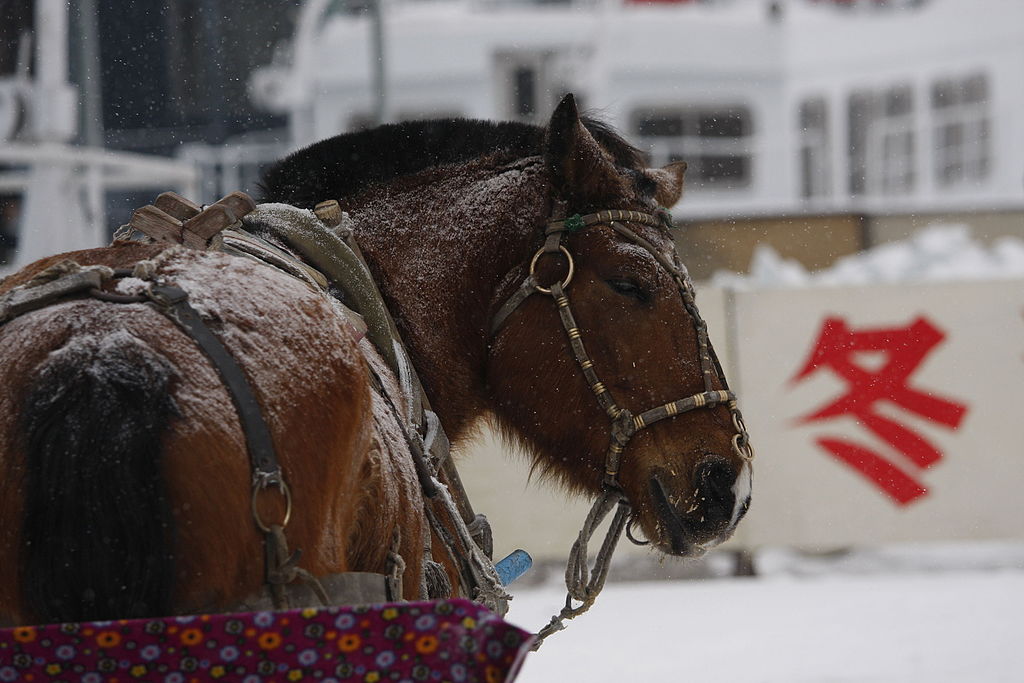Since the Beijing Olympics in 2008, horse-riding has been booming in China. With courses up to ten times more expensive than those offered in French riding schools, a shortage of instructors that necessitates the recruitment of foreign teachers, and a passion for horse racing that is spreading even to the middle classes, is China the new El Dorado of the equestrian world?

China’s equine industry tries to catch up
In Chendu, a huge equestrian center was built a few years ago. Already welcoming over 600 enrollees, the site’s impressive facilities come with a hefty price tag: 115- euros for just 45 minutes of private tuition. To meet this demand, club owners are not hesitating to call on foreign instructors to train future Chinese instructors.
Having gone from 100 clubs to 1,400 in barely a decade, the country has a lot of catching up to do in terms of equestrian infrastructure and Chinese workforce adapted to the various equestrian disciplines.
Another essential commodity is sorely lacking in China: horses. The keystone of the industry, the breeds present in China (or in neighboring countries) are poorly adapted to the disciplines that thrill Chinese amateurs, due to their morphology, which is too small and stocky. Despite the complexity of the import procedure, the figures are clear: with just a hundred horses imported from abroad in 2007, compared with over 2,000 in 2011 and up to 4,000 in 2012, China is becoming a prime target for discerning breeders.
Chinese billionaires ready to bet on the right horse
As the image of the horse has always been a chic one, present in the imagination of the nobility in most cultures, it was only natural that this practice should be emulated by the wealthiest Chinese.
Polo is a perfect example of this, a sport in which registration in the most prestigious clubs costs around 50,000 euros, and for which the owners of the most renowned structures don’t hesitate to bring in horses and trainers from Argentina, for astronomical sums.
Chinese horse racing: technology hijacks gambling
While numerous press articles highlight the equine antics of Chinese billionaires, the horse craze is also affecting the middle class, as shown by the growing evolution of racing.
Gambling is banned in China, whatever form it takes. This is what has made Macau famous, the only exception to this total censorship. Horse racing is no exception, on the contrary: the sport was banned when Mao came to power, as it was one of the symbols of the foreign occupation of the last century.
To achieve this, race organizers in China have had to rival each other in ingenuity, using a dedicated Smartphone application to supplant the randomness characteristic of gambling. Chinese spectators will be able to select a horse, as in any conventional bet, but will have to shake their phone to move their horse forward on the application. This takes some of the randomness out of betting, turning the activity into a virtual game of skill…
The winnings are very different from those at other racecourses around the world. Here, the winner takes home a household product or other low-value-added commodity. On the other hand, there is an important opportunity here: if the middle classes become passionate about horse racing without the opportunity of economic gain, this leaves a bright future – for equestrian sports.
The economic stakes of the horse for China and its neighbors
Behind the footsteps of the horses and the emulation of the crowds lies a veritable economic treasure trove. For several decades now, the cities of Macau and Hong Kong have been sharing billions of dollars between them.
But other players are keen to get their hands on this equine jackpot, as illustrated by the allegations made by the Mongolian authorities, who announced a few years ago that they wanted to organize massive horse racing with authorized betting. An opportunity for the country to attract a considerable proportion of the population of mainland China, who, like most Chinese, are keen gamblers.
In a few years’ time, we could well see the Chinese swapping their mobile phones for banknotes…


